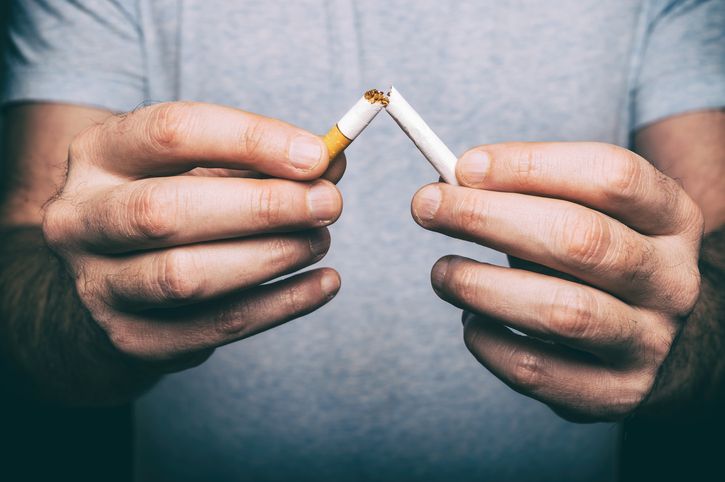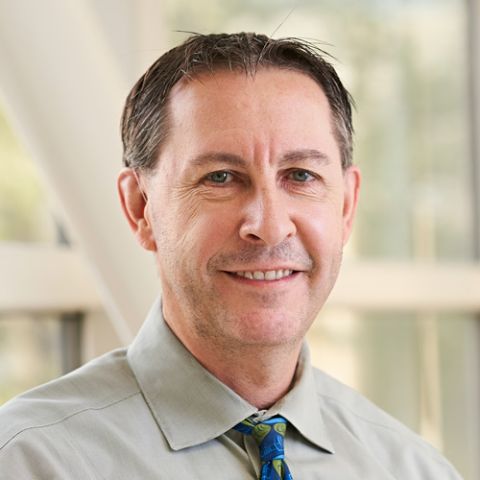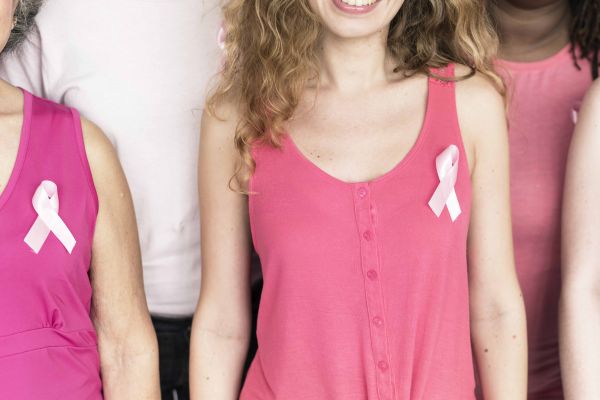For National Cancer Prevention Month, we asked our cancer experts for some proactive steps that you can take to reduce the cancer risk for yourself and your loved ones. Here are four pieces of advice to help you reduce your risk for many diseases, including breast, lung, skin, GYN and oral cancer.
Quitting Tobacco Use
At some point, you've probably been given advice about quitting smoking from your doctor or family and friends. We know quitting isn't easy, so here are a couple of things to keep in mind. Treating tobacco dependence has come a long way. There are proven methods like combining the use of FDA-approved medications along with behavioral coaching support that will increase your chances of quitting for good. The benefits of quitting are too many to list, but did you know that if you are being treated for cancer, quitting smoking can improve the effectiveness of your treatment? Help is available to you today. If you are a patient, Roswell Park offers one-on-one quit-smoking help. The New York State Smokers Quitline is also available for all NYS residents and offers telephonic coaching, support and a starter supply of nicotine replacement medications for those who are eligible.
Let us help. You are worth it! Roswell Park patients can call the Tobacco Treatment Service at 845-1300, ext. 7851, or any NYS resident can call 1-866-NY-QUITS (1-866-697-8487) or visit the Quitline website at www.nysmokefree.com. And remember, your healthcare provider can also provide support and look into your quit-smoking benefits through your health plan.
- Andrew Hyland, PhD, Chair of the Department of Health Behavior at Roswell Park
Exercise and breastfeeding can reduce women's breast cancer risk
There are different types of breast cancer, and some risk factors vary depending upon subtypes and age. Regardless of subtype, however, we do know that being active reduces breast-cancer risk; even moderate or light activity is better than being sedentary. Another confirmed breast-cancer risk factor is alcohol consumption, so reducing drinking is helpful.
Having children has been shown to reduce the risk of breast cancer, but we know now that is only applicable to estrogen receptor-positive tumors, which are more common in older women and white women. Over the last decade, it has become clear that having children actually increases the risk of breast cancers that are negative for hormone receptors, a type that is more common in black women and has a poorer prognosis. Importantly, breastfeeding greatly reduces this risk. Historically, black women have been more likely to have children and to not breastfeed than other U.S. groups, so the promotion of breastfeeding may have a strong impact on reducing fatal breast cancers.
- Christine Ambrosone, PhD, Senior Vice President of Population Sciences and Chair of Cancer Prevention & Control at Roswell Park
The HPV Vaccine Can Reduce Cancer Risk for All Genders.
Exposure to the human papilloma Virus (HPV) has become nearly universal, and persistent infection with certain types of HPV is a known risk factor for many cancers and pre-cancers. These include oral cancers, penile, anal and many gynecologic cancers, including nearly all cervical cancers. However, HPV is preventable with a safe and effective vaccine that protects against nine common types of HPV; that vaccine is now licensed for use in anyone ages 9-45. If the series is started before age 15 in a healthy child, two doses of the vaccine are needed; otherwise immuno-compromised children and everyone ages 15-45 need a three-dose series. Leading medical groups are unified in recommending completion of the HPV vaccine series by age 12 and giving catch-up vaccinations up to age 26 for those who have not completed the series. Persons ages 27-45 are encouraged to discuss HPV vaccination with their healthcare provider.
- Martin Mahoney, MD, PhD, Director of Cancer Prevention and Detection Center at Roswell Park Comprehensive Cancer Center.
Reducing Your Skin Cancer Risk
Skin cancer is the most commonly diagnosed cancer in the United States. Reducing the risk of skin cancer can be achieved through effective sun protection. Examples of sun protection include avoiding direct sun exposure to your skin between 10 a.m. and 2 p.m., the time of the day when the sun's rays are the most intense. When you're out in the sun, apply a sunscreen that has an SPF of 30 or greater and also is indicated to be "broad-spectrum."
Early detection provides the best outcomes should skin cancer develop. See a dermatologist for annual total-body skin examinations and immediate evaluation of suspicious skin spots. At the Roswell Park Dermatology Center, we are available and trained to perform annual skin screenings and evaluations of suspicious skin spots.
Assess Your Cancer Risk
Complete our cancer screening and prevention questionnaire to manage your cancer risk and screening needs.
Sign up!


